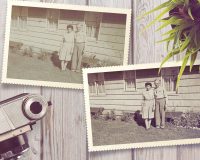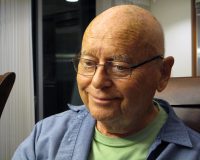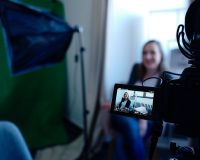I have been watching “In Treatment”, an HBO drama about a psychotherapist, Paul Weston (with award winning performance by Gabriel Byrne). Each episode is a session with one of his patients, including one session with his own therapist, Gina, at the end of the week. The session with Gina covers some of the things that are going on with his patients but we also learn about Paul’s life. During the series his marriage falls apart and finds him living alone, working at creating a relationship with his two children. His father, with whom he had a very complicated relationship, dies and leaves him struggling to understand that relationship. These are the things he discusses with Gina, and we can see that with Paul as well as all of Paul’s patients, what happens and consequently what we make it mean has significant impact on how we live our lives.
I am really enjoying this show but it has brought up some interesting reflection on memory and how we process our memories and whether they are correct or not.
In one episode, Paul is taking with Gina about his recollection of a significant family event and she suggests that perhaps how he remembers it isn’t exactly what happened. She says: “Our memories can be very unreliable. We like to think of them as indelible records of our past. Yet every time we pull out a scene we fiddle with it a little bit. We’re constantly altering our memories so the past won’t conflict with the present. On this night, some of the facts aren’t what you think they are.”
“So the past won’t conflict with the present…” We create a story and then justify the events and actions to support that story. In this case, Paul had created the story that his father was absent and didn’t care about what happened to he and his mother. Yet when his father passed away, he was hit head-on with the reality of how cherished his father was out in the world and how many people loved and respected him. It didn’t mesh with his ‘memory’ of a cold and distant parent. This is probably the goal of all therapy, to pull out the stories we’ve created about our childhoods and to look at what happened and then what we made it mean about ourselves.
In the work I do as a personal historian, I deal every day in the memories people have and how they context their lives. A constant topic of discussion among my peers is whether we are obligated to get the facts right. Clearly when we’re reporting public history, the facts are critical. The current effort by some countries to deny the existence of the holocaust is an example of what can happen when you start creating a different ‘history’ than what occurred. But in the world of personal history, our memories, how we see what happened to us in the greater context of our lives, families and communities, is a matter of subjectivity. I am not a psychotherapist and though I value the analytic process, I am here to record what you say happened and who you say you are. And the process can be eye-opening for many, particularly the children of the subject, who may have never heard some of the stories we objective biographers tend to get from our clients once they open up to the process of biography.









Fascinating topic, Stefani. I like the distinction you make between public history and personal history. One time when I was back in my hometown I asked people who were in high school with me – including a teacher – how exactly we were informed of the assassination of President Kennedy. We all used the same pieces to tell our story- announcement on the PA system, an assembly in the auditorium, let out of school early, football game cancelled – but we put them together in quite different ways.
Stefani, I think that’s why many cast aspersions on oral history until the world started to appreciate the importance of knowing how different people see the same experience and understand that history is not simply facts one reads in newspapers or textbooks.
Thanks cj and Mim. Our recollections are often very different than the people involved in them. I think I have more to write about this subject 🙂